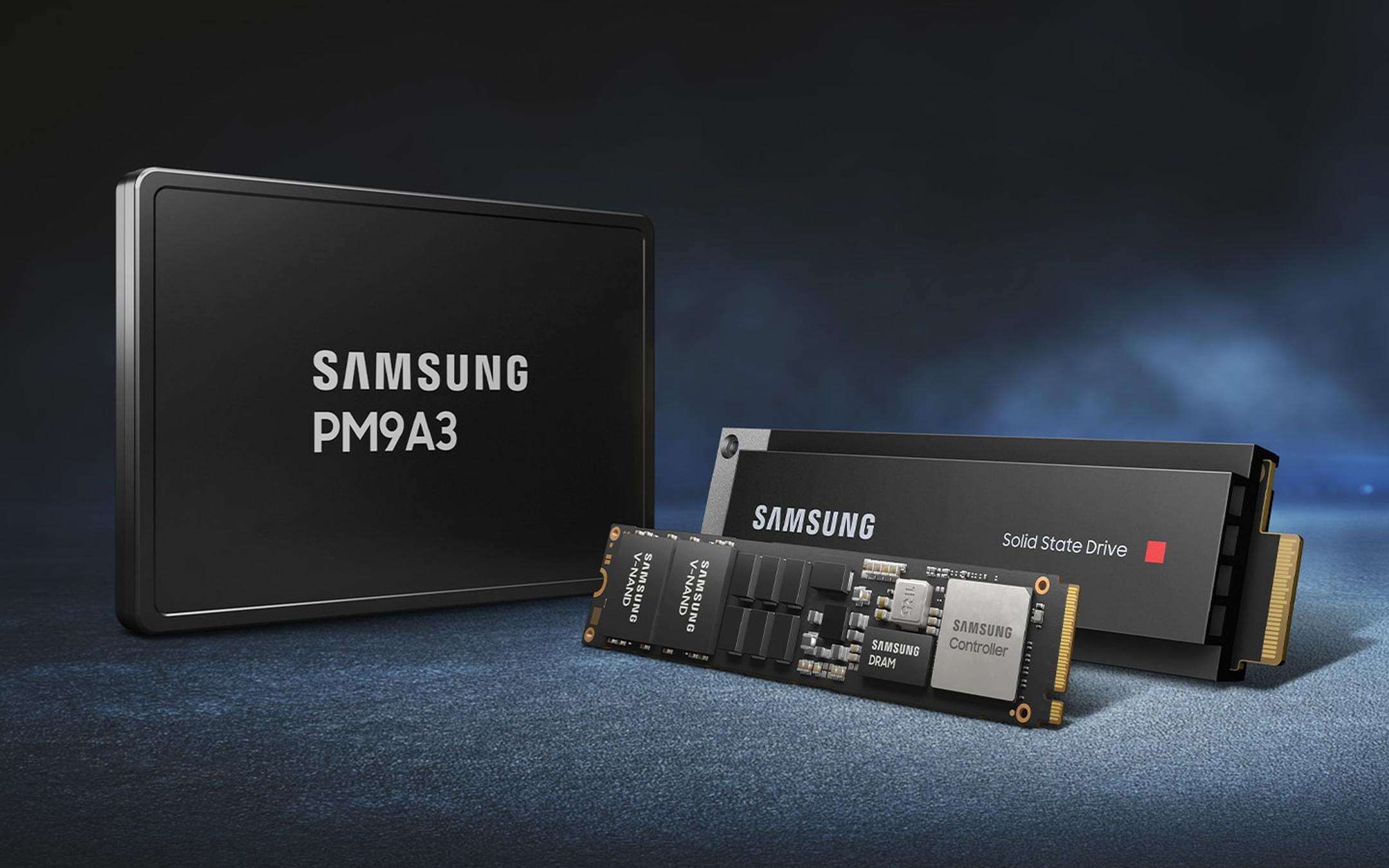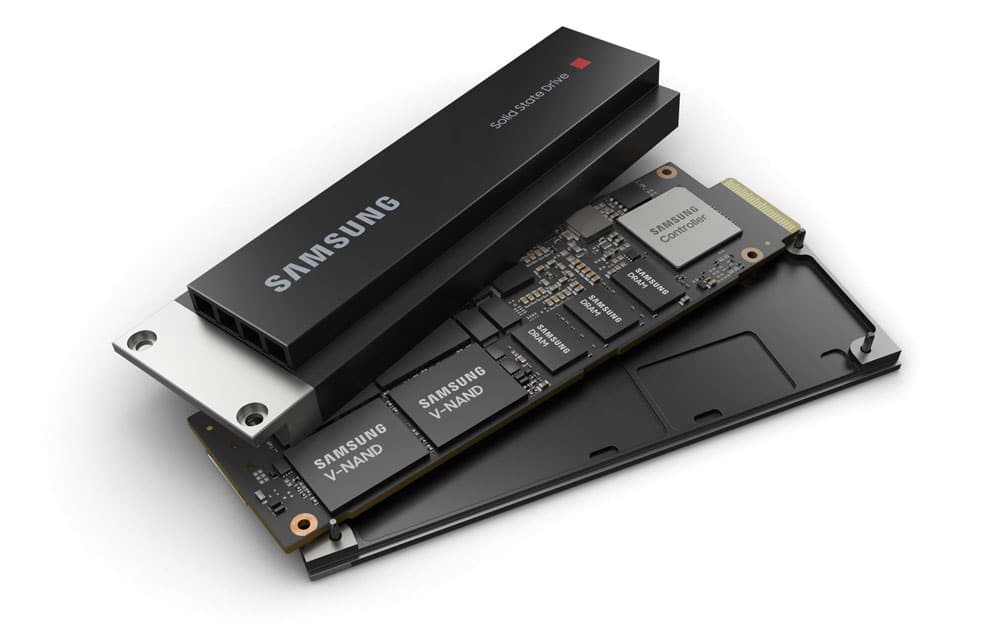
Samsung PM9A3
Samsung has announced that it has started mass production of PM9A3 SSDs for data centers. This is the most technologically advanced series among those offered by the Korean manufacturer. Their installation on servers will ensure performance, reliability and reduced consumption. One of the customers is Facebook.Samsung PM9A3: Fast and Reliable SSDs
The new PM9A3 SSDs first meet the Open Compute Project (OCP) NVMe Cloud SSD specifications, which is a unified set of standards interoperable defined by various companies, including Facebook. PM9A3 SSDs for data centers are available in the E1.S form factor developed by the Enterprise & Data Center SSD Form Factor (EDSFF) group, but models in U.2 and M.2 formats can also be purchased.Samsung has not published the complete specifications, however indicating the presence of sixth generation V-NAND flash memories (1xx-layer). On the PCB you can also see DRAM modules and the proprietary controller. Compared to the previous generation, the sequential write speed has been doubled (3,000 MB / s). Additionally, random read and write speeds have increased by 40% (750,000 IOPS) and 150% (160,000 IOPS), respectively.
PM9A3 SSDs support nine power levels ranging from 8.25 Watt (M.2) to 35 Watt (EDSFF E1.S). The write energy efficiency has also been significantly improved, equal to 283 MB / s per Watt. Samsung says replacing all server hard drives with 4TB PM9A3 SSDs can save 1,484 GWh of energy, enough to power all homes in a big city during the summer months.
In addition to the traditional security features (authentication and encryption), the new SSDs support "secure boot" which avoids the use of modified firmware and the "anti-rollback" mechanism which prevents the installation of vulnerable old firmware.
Source: Samsung
Samsung PM9A3 E1.S Goes Into Mass Production
Today Samsung Electronics Co., Ltd., announced that it has begun mass production of the Samsung PM9A3 E1.S. The company claims that this is its most advanced line of data center SSDs. It is also said to be the industry’s first data center SSD that is compliant with the latest OCP standards.
Today Samsung Electronics Co., Ltd., announced that it has begun mass production of the Samsung PM9A3 E1.S. The company claims that this is its most advanced line of data center SSDs. It is also said to be the industry’s first data center SSD that is compliant with the latest OCP standards.

As stated above, the Samsung PM9A3 E1.S fully complies with the Open Compute Project (OCP) NVMe Cloud SSD Specification to satisfy the rigorous demands of enterprise workloads. The OCP Specification is a set of unified interoperable standards, enabling SSD vendors to work toward next-generation storage designs with much more effectiveness. The OCP standards are used by large data center providers such as Facebook. The new SSD is said to deliver the optimal mix of performance, power, and reliability for these data centers.
Looking at the drive itself, it is built with Samsung’s sixth-generation V-NAND. According to the company, the sixth-gen in the Samsung PM9A3 E1.S shows a big performance boost of the fifth-gen V-NAND like the PM983a. The new drive quotes speeds of 3GB/s, 750K IOPS read, and 160K IOPS write. For power, the drive is made to be efficient in data center operations. To that end, it provides power efficiency at 283MB/s per watt for sequential writes, making it nearly 50% more energy-efficient than the previous generation’s 188MB/s per watt (also much more efficient than even the most efficient HDDs).
As security is a huge factor in storage of this type, the Samsung PM9A3 E1.S comes with the standard data encryption and authentication security features. The new drive is also equipped with secure boot and anti-rollback mechanisms to ensure data protection. Both of these features center around keep firmware safe. Secure boot prevents unauthorized firmware from being used and anti-rollback keeps the firmware from being rolled back to a flawed version.
Samsung
Engage with StorageReview
Newsletter | YouTube | Podcast iTunes/Spotify | Instagram | Twitter | Facebook | RSS Feed